Education
CEPIDE Lays Ground for Innovative Doctoral Education in Ugandan HEIs
Published
4 years agoon
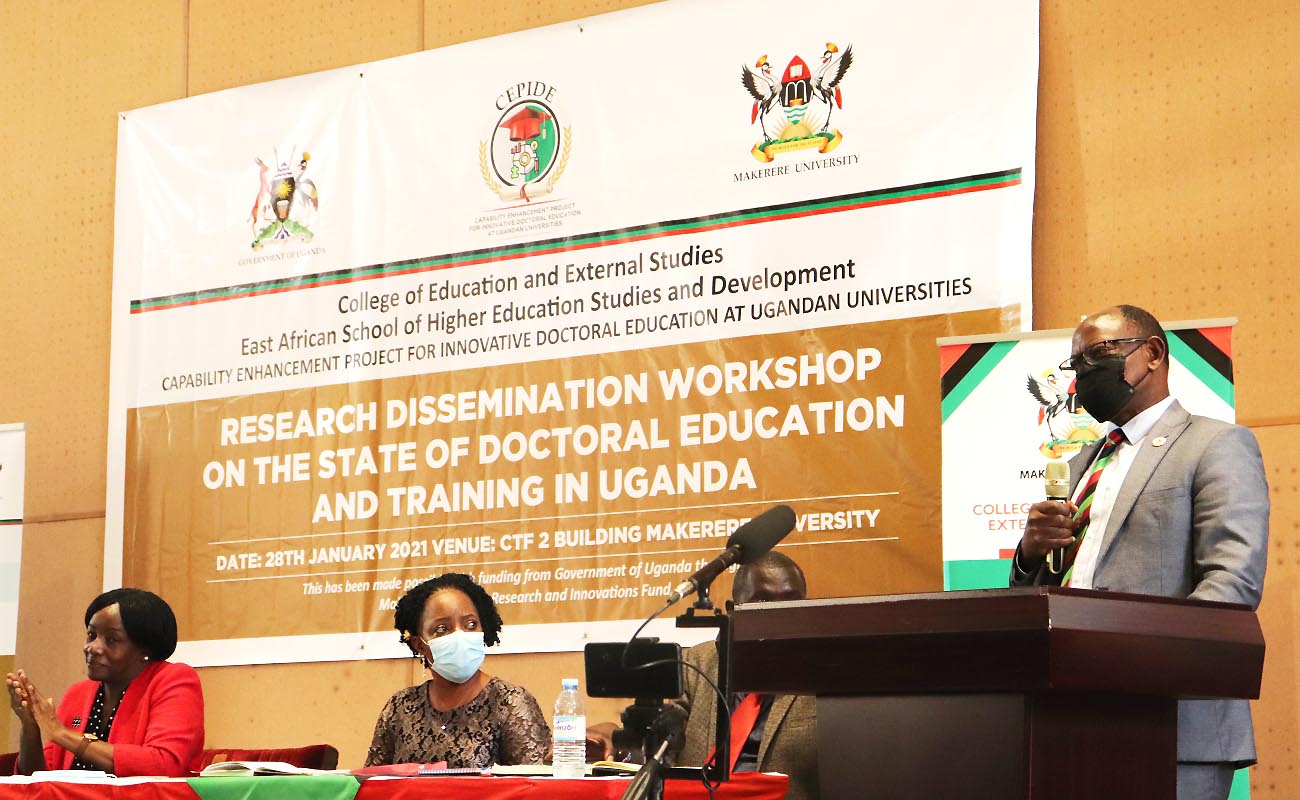
CEPIDE is an acronym for the Capability Enhancement Project for Innovative Doctoral Education at Ugandan Universities (CEPIDE). Funded by the Government of Uganda under the Makerere University Research and Innovations Fund (Mak-RIF), this two-phase project aims to build institutional capacity and individual capabilities of doctoral supervisors at Ugandan universities by giving rise to a shift from traditional modalities to innovative approaches of doctoral education.
On 28th January 2021, stakeholders gathered in the Central Teaching Facility 2 (CTF2) Auditorium, Makerere University, to receive findings from Phase one of the project. This phase entailed conducting a baseline study of the state of doctoral education in Uganda. Phase one will also involve writing a course module for a specialized blended capacity building training for supervisors of doctoral candidates at Ugandan universities. Phase two on the other hand will involve implementing the course module developed in phase one as well as creating a database and an online platform for e-networking, knowledge sharing and professional support among doctoral supervisors in Ugandan universities.
The East African School of Higher Education Studies and Development (EASHESD) under which CEPIDE falls has aligned its activities along four thematic areas namely; Policy and advocacy, Research and Innovations, Leadership and Management, and Training and Learning. These thematic areas position EASHESD to contribute to research in the understanding of the field of higher education, with the CEPIDE study intricately feeding into this.
EASHESD is predominantly a graduate School offering Masters and PhD programmes and as such, the CEPIDE study on improving the quality of Doctoral Education and Training in Universities in Uganda is a fulfillment of its mandate. Addressing the dissemination workshop, the EASHESD Dean Dr. Ronald Bisaso elaborated that CEPIDE study is aligned to the School’s own practice and grounded in research undertaken therein.
“As Dean, I am happy to note that the members of staff from the East African School of Higher Education Studies and Development wrote proposals and received funding to support three projects under the Makerere University Research and Innovations Fund (MakRIF). These projects include: i. Capability Enhancement project for Innovative Doctoral Education at Ugandan Universities (CEPIDE), ii. Enhancing Women to Leadership positions in Universities in Uganda (WOLEP) and iii. Pedagogical Leadership of Academic Staff in Higher Education Institutions to Enhance Graduate Work Readiness and Transition to Work (PLASHE-WIL).
“Through the aforementioned research projects, the School has ensured that key stakeholders namely female Vice Chancellors, the National Council for Higher Education (NCHE), National Planning Authority (NPA) and the Ministry of Education and Sports (MoES) participate in the research projects as well as actively engage with researchers during the dissemination of findings on higher education” remarked Dr. Bisaso.
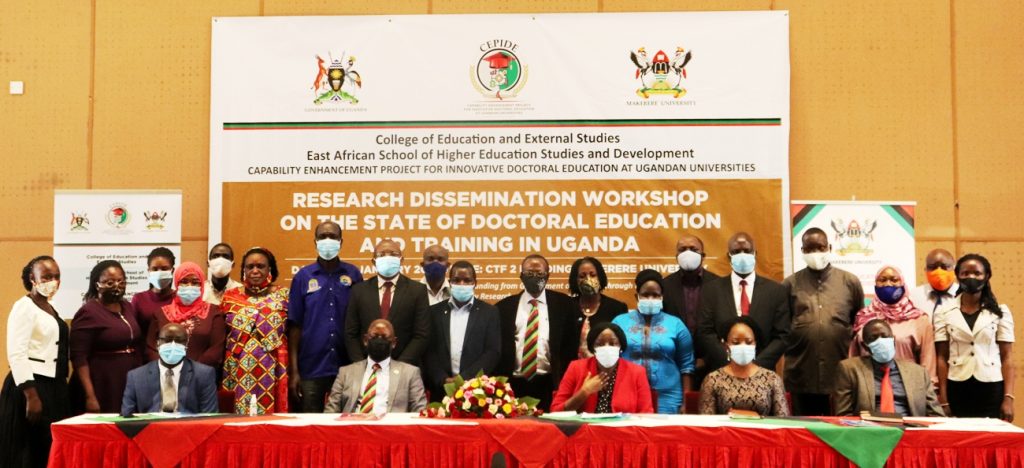
He concluded by saying that the involvement of key stakeholders in research and dissemination has enabled EASHESD to build a network that connects research in higher education with Government agencies that focus on higher education and development as well as universities in Uganda.
Presenting an overview of the project, the Principal Investigator (PI) Dr. Irene Etomaru said the study was driven by the acute shortage of a critical mass of doctorates with requisite knowledge and skill sets to undertake translatable research and train innovative researchers in Uganda. “There are only about 26 researchers per million inhabitants in Uganda, which is well below the world average of 1,083, about 1,000 PhD holders in various disciplines are unevenly distributed across the academia, government ministries, agencies and research institutes and 80% of these are at Makerere University.”
The PI shared that through CEPIDE, it is envisaged that an Enhanced Postgraduate Environment (EPE) will be created in Ugandan universities. The EPE, she said, would lead to the nurturing of a new cadre of doctorates able to undertake translatable research, train innovative researchers as well as develop innovative models to address local societal needs and improve Uganda’s innovative capacity.
In terms of data collection, the CEPIDE team reviewed laws, plans, policies and reports, and held Focus Group Discussions (FDGs) with NCHE. Furthermore, they collected data from fourteen institutions offering doctoral education and training in Uganda and held in-depth interviews with a total of 49 participants.
Prof. Fred E. K. Bakkabulindi another member of the research team tasked with the role of mentorship then delved into the context and history of doctoral training in Uganda. Statistics for the period 1970-2020 revealed that Makerere University at 90% had the highest number of PhDs among the five doctorate awarding Public HEIs in Uganda. Mbarara University of Science and Technology (MUST) followed with 7.2%, Gulu University (GU) with 1.5%, Uganda Management Institute (UMI) with 1.1% and finally Kyambogo University (KyU) with 0.2%. The glaring difference in percentages could be attributed to the fact that whereas Makerere’s statistics stretch back to 1970, the other four HEIs only started awarding PhDs in the 2010s with GU coming closest in 2013.
The statistics shared by Prof. Bakkabulindi further proved the unfortunate fact that doctoral education and training in Uganda is biased in favour of males. Only 23.4% of the total numbers of PhD graduates in the aforementioned 50-year period were female. UMI led the percentages with 45.5%, followed by Makerere at 23.6%, MUST at 20.5%, GU at 14.2% while KyU is yet to graduate any female PhDs.
Prof. Bakkabulindi also examined the Science Technology Engineering Mathematics (STEM) versus non-STEM dichotomy with telling results. KyU proved that it is a predominantly STEM HEI by producing 100% STEM PhDs. KyU was followed by MUST at 79.5%, Makerere at 67.6%, GU at 40%, while UMI produced none.
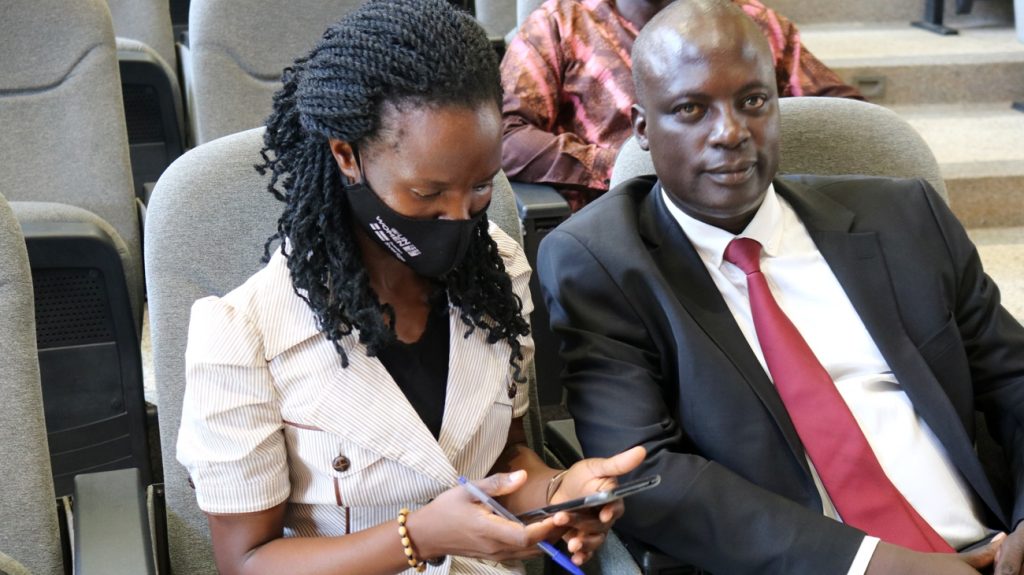
With the contexts established, it was time for the participants to hear the team’s findings from their baseline study. Dr. Tom Balojja who also doubled as the day’s emcee in delivering a summary of the findings shared that doctoral education and training in Uganda had low throughput rates. Furthermore, doctoral education and training is biased in favour of males and STEM disciplines, and has its capacity concentrated in Makerere University.
He then went on to present the findings in detail, as espoused by the European Commission’s Seven Principles of Innovative Doctoral Training. These seven are; Research excellence, Attractive institutional environment, Interdisciplinary research options (cross-disciplinarity), Exposure to industry and other relevant employment sectors, International networking, Transferable skills training and Quality assurance.
The CEPIDE study recommended that;
- Government of Uganda should integrate doctoral education and training in national development planning within the context of the policy objective of increasing the percentage of the GDP spending on Research and Development (R&D).
- National targets should be set and resources should be committed to achieve the set targets in order to address concerns about the inadequacy of the critical mass of researchers in the country.
- Government of Uganda should introduce a sufficient and well-structured legal framework necessary to regulate doctoral education and training. The legal framework should regulate the structure of doctoral programs and curriculum issues, support systems and staffing to improve the quality of the postgraduate training environment in HEIs in Uganda.
- Government of Uganda and institutions offering doctoral education and training should work out mechanisms which will enable them to work with the industry and other research institutions in promoting research and innovations.
- Institutions should transit from offering PhD by research to the taught PhD
- The scope of doctoral education and training should be broadened to incorporate other models of the doctorate such as PhD by coursework (taught PhD), Professional doctorates, Work-based doctorates.
- The role and funding of Doctoral Schools in Universities should be underscored to create enhanced postgraduate environment (EPE)
- More research and interventions into doctoral education and training in Uganda.
Reacting to the presentation, the Director Directorate of Research and Graduate Training (DRGT), Prof. Buyinza Mukadasi requested the NPA to come up with a PhD training strategy for Uganda that clearly outlines the demand for PhDs particularly in the industry as well as resources to train them. He emphasized the need to preserve the quality of PhDs trained as the drive for more PhDs is impressed upon HEIs. In the same breath, the Deputy Director DRGT, Dr. Robert Wamala advocated for a mechanism to ensure productivity of PhDs as a third factor to consider in addition to quantity and quality.
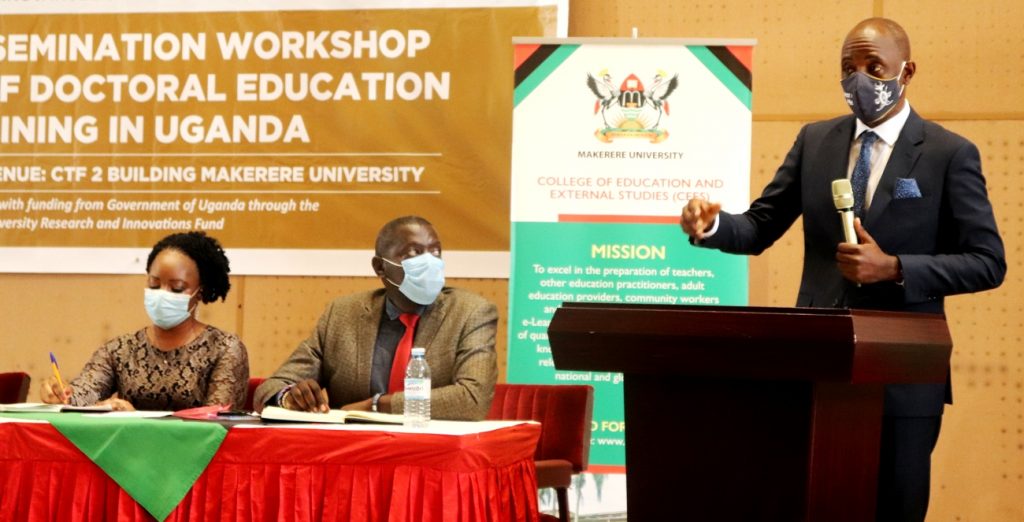
Dr. Paul Birevu Muyinda, the Deputy Principal College of Education and External Studies (CEES) in his remarks commended Mak-RIF for changing the terrain of research and innovations at Makerere University. “CEES was one of the Colleges that wasn’t attracting much funding but with the coming of Mak-RIF, we have seen a very significant increase from only two research Projects to twenty.”
He thanked NPA for accepting to conduct both virtual and physical training for staff at Makerere University who are interested in writing impactful policy briefs.
Dr. Sabrina Kitaka who represented the Mak-RIF Grants Management Committee (GMC) Chairperson, Prof. William Bazeyo commended the CEPIDE research team for recognizing that Makerere as a leader ought to strive to bridge the gap in doctoral training and education between itself and younger institutions. She thanked the Government of Uganda for providing funding to more than 500 Research Projects all aimed at informing national development priorities.
“The Volatility, Uncertainty Complexity and Ambiguity (VUCA) phenomenon created by the COVID-19 is teaching us how to be innovative by disseminating our findings both physically and online. Any innovation that results in training of scholars is not only exciting but brings closer the possibility of an education that is boundless” said Dr. Kitaka.
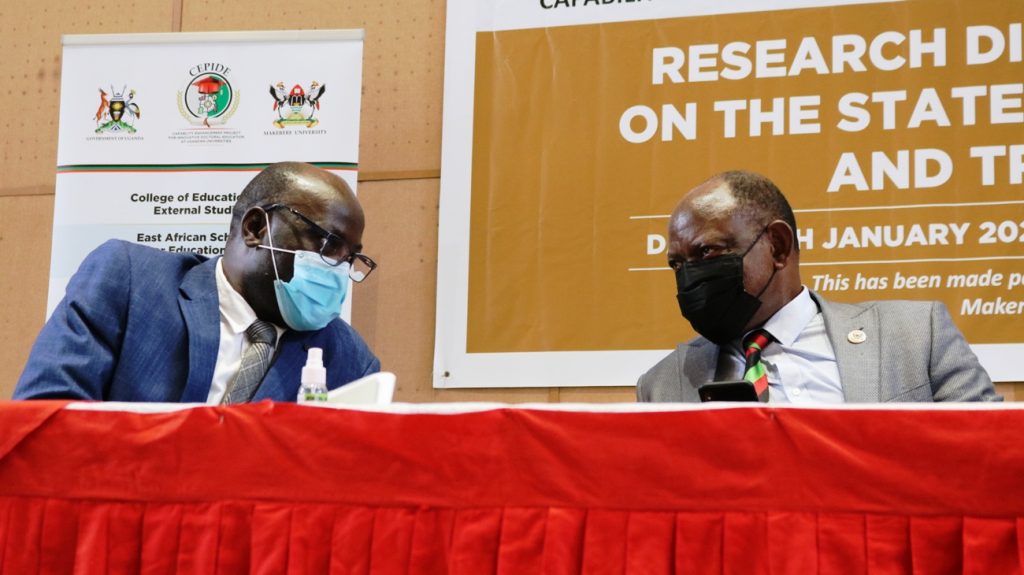
Mr. Timothy Sejjoba who represented Dr. Jane Egau, Director for Higher Technical and Vocational Education and Training – HTVET, Ministry of Education and Sports (MoES) in his address congratulated Makerere University upon not only securing funding under Mak-RIF but also putting it to good use. “We believe that you are going to inspire other institutions to reach the heights that they should.”
He noted that the CEPIDE study had brought very interesting findings and conclusions to the fore and that his Ministry would be very glad to continue discussing these with HEIs. On the issue of quality assurance for PhDs Mr. Sejjoba advised that HEIs ought to be self-regulating so as to guarantee the brand of their programmes and graduates in the job market.
In his remarks, the Vice Chancellor, Prof. Barnabas Nawangwe congratulated the CEPIDE team upon delivering possibly the most important Mak-RIF seminar to-date, owing to its addressing of the University’s core strategic direction head-on. He equally thanked the Government of Uganda for providing; i. Funding for over 500 research and innovations through Mak-RIF, ii. Increasing the monthly salary of a Professor to UGX 15million, and iii. Funding infrastructure development for research. “We now have some of the best labs anywhere in the world and there is no reason why as a University we cannot drastically contribute to transformation of our society.”
He reiterated Makerere’s commitment to support other HEIs to build their capacity in doctoral training and teaching and commended the decision by the Higher Education Student Financing Board (HESFB) to start offering loans for postgraduate study at Higher Education Institutions (HEIs) in Uganda.
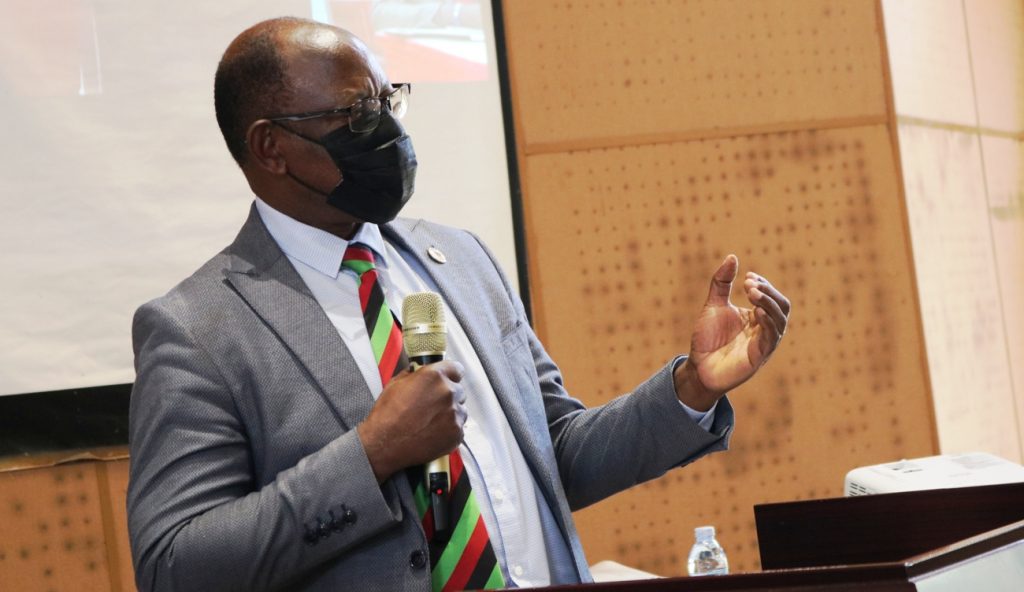
The Executive Director National Planning Authority (NPA), Dr. Joseph Muvawala in his address commended the ongoing policy work between the School of Economics, College of Business and Management Sciences (CoBAMS) and his authority, noting that this ought to be duplicated between other Schools and Government Ministries, Departments and Agencies. He shared that increasing number of graduate students seems to be sufficient condition for Uganda to take off in terms of economic development and emphasized the importance of Makerere University implementing its new 10 year strategic plan, which he described as “good”.
He advised the CEPIDE team and all researchers to improve their capacity to write policy briefs, noting that policy makers lack the time to read research papers in their entirety. “I am here to say that you have our full support as NPA and my colleague Dr. Mugendawala will draft a concept on how to connect graduates to industry.”
Concluding the day’s remarks, the Chief Guest Dr. Nora Mulira who represented the Executive Director NCHE, Prof. Mary Okwakol acknowledged that the Council as a participant in the CEPIDE study had gleaned a number of lessons to incorporate in the UNESCO instrument that feeds the state of Uganda’s Higher Education. She added that the study provided a number of options on how to advance the National PhD programme and thanked the Vice Chancellor for effectively using the funds received from Governement of Uganda.
“To the Principal Investigator, this is a pivotal study that is going to move Uganda ahead and is well aligned with strategic development framework as enshrined in NDPIII and Vision 2040, which look at research and innovation as a driver for development” commended Dr. Mulira.
She urged the research team to formulate an output plan that stipulates the specific actions that need to be undertaken by particular stakeholders within set timelines.
Article by Public Relations Office.
Please see Downloads for presentations

You may like
-


Simplicity, Service & Scholarship: Hallmarks of Professor Livingstone Luboobi’s Legacy
-
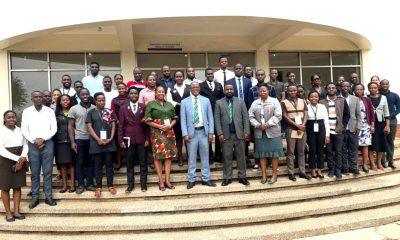

Mak Moves to Revitalize Food Technology & Business Incubation Centre to Drive Innovation & Entrepreneurship
-
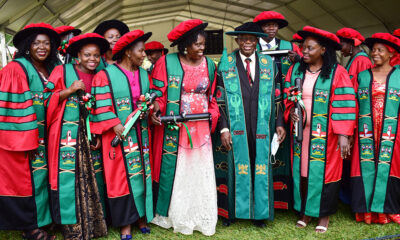

Advert: Postgraduate Admissions 2025/26
-


Ugandan Study Flags Girls and Senior Students as a Mental Health High-Risk Group
-
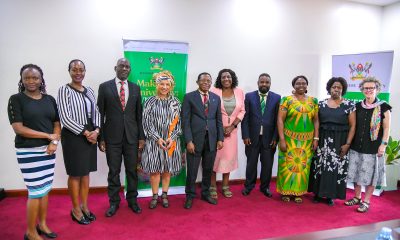

Mak, HERS-EA Discuss Nurturing More Women Leaders
-
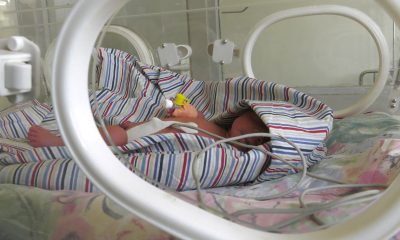

Call For Applications: PhD Fellowship Training Position
Education
Admission List to Bachelor of Education External (BED) 2025/26 -Private Sponsorship
Published
2 weeks agoon
July 4, 2025By
Mak Editor
The Office of Academic Registrar, Makerere University has released the admission list of Diploma holders provisionally admitted to Bachelor of Education (EXTERNAL) programme under Private Sponsorship for the Academic Year 2025/2026 pending verification of their academic documents by the awarding institutions.
The List can be accessed by following the link below:
Update 4th July 2025, Batch II
Education
Mak CEES discusses partnership with King Salman Global Academy for the Arabic Language
Published
4 weeks agoon
June 20, 2025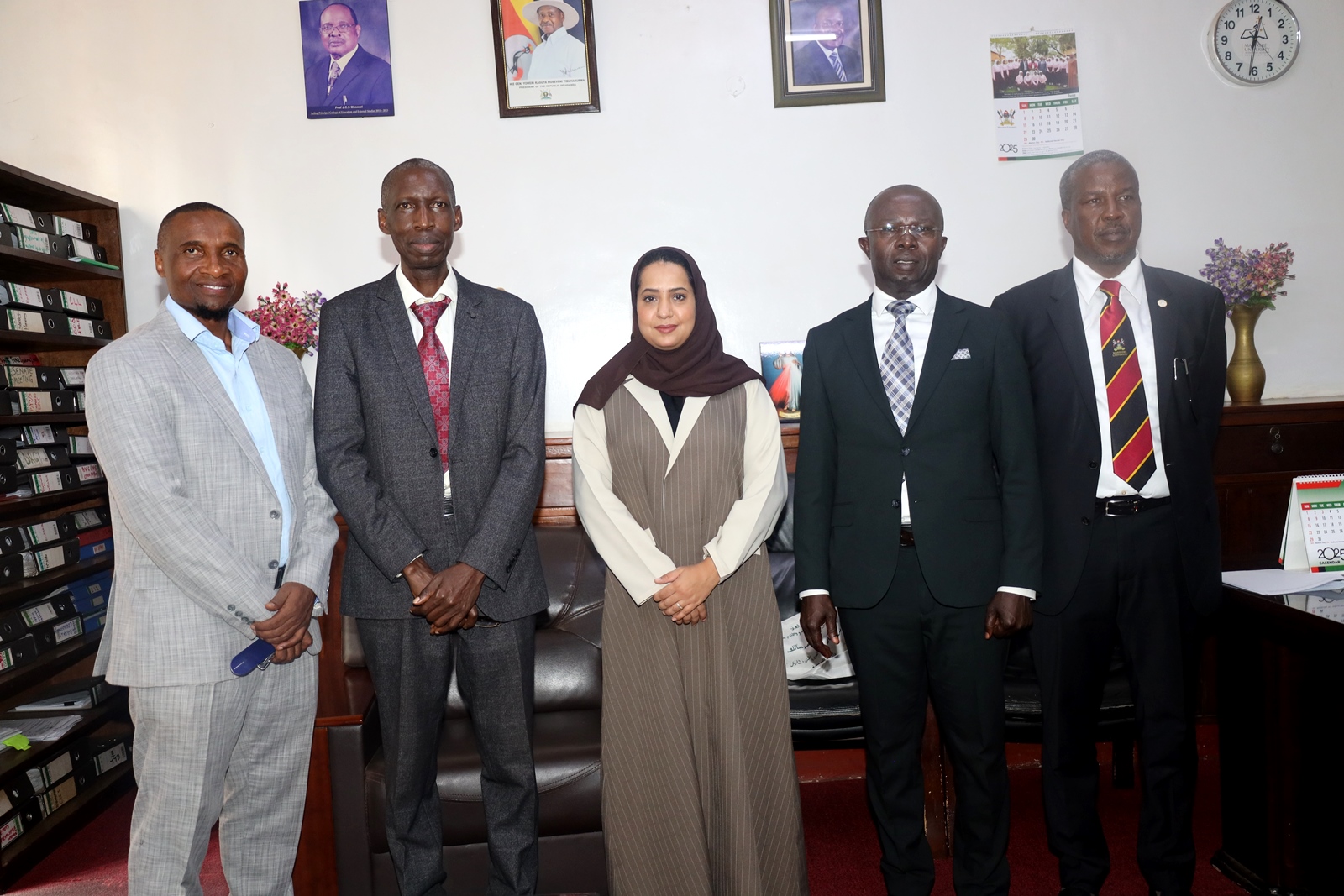
On 17th June 2025, the Principal of the College of Education and External Studies at Makerere University, Prof. Anthony Muwagga Mugagga hosted a meeting with Dr. Hanan Al Malki, the Director of Program and Centre Planning and Management at the King Salman Global Academy for the Arabic Language, aimed at building institutionalized partnerships in language education in Uganda and globally.
The proposed collaboration presents Makerere University with a golden opportunity to increase the number of students studying the Arabic language at the Undergraduate and Masters’ degree levels respectively through provision of scholarships, as well as, staff and student exchange programmes.
With reference to the 2024/2025 academic year, over 40 students are studying Arabic Language studies under the Bachelor of Arts with Education degree programme, and two (2) students studying the Arabic language at the Masters degree level at the College of Education and External Studies.
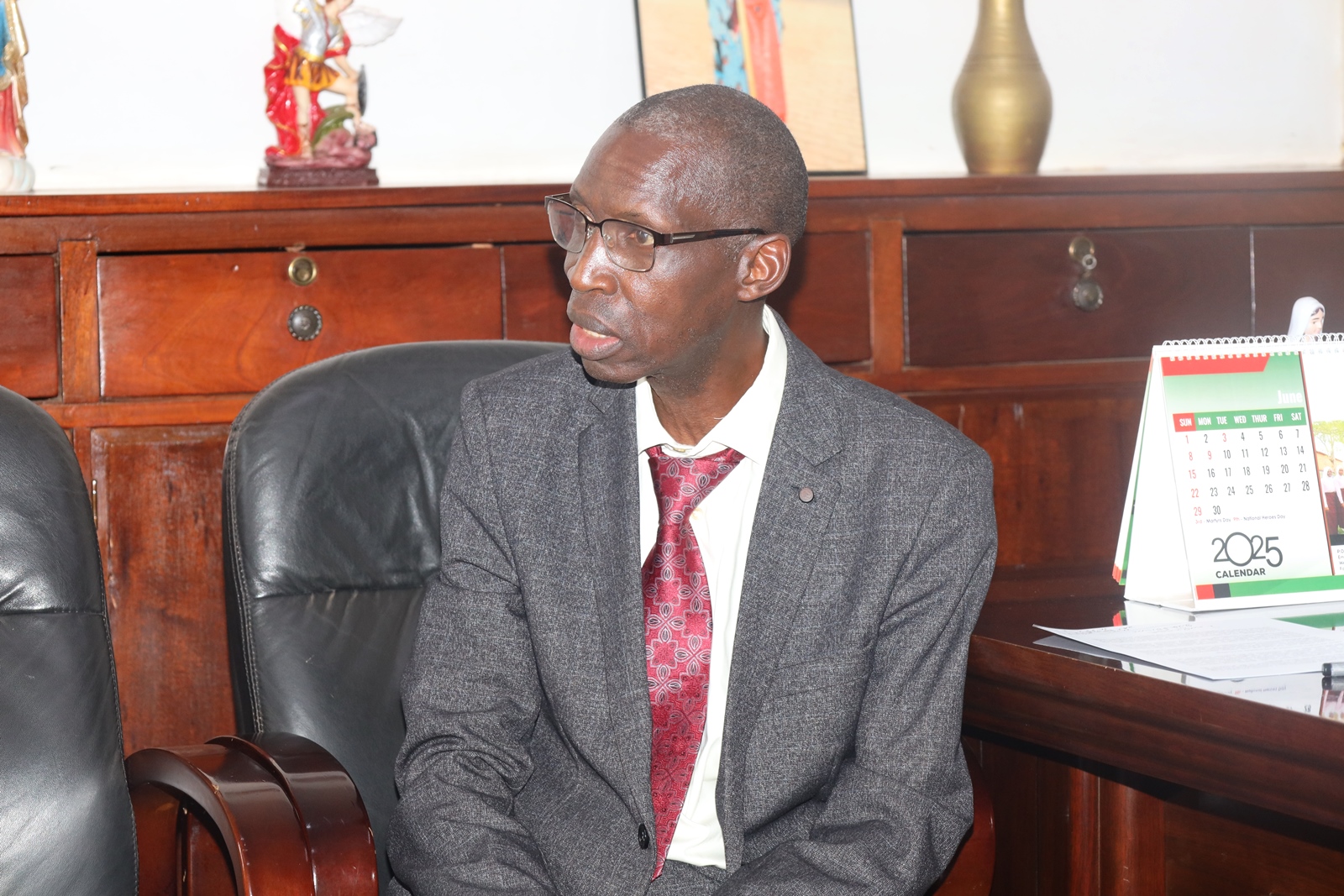
Welcoming Director Malki to the College, Prof. Mugagga expressed the readiness of staff members to collaborate with reputable partners to promote language education in Uganda and globally. He was delighted that through this meeting, the College had embarked on a fruitful discussion to partner with an international academy established to teach, promote and preserve the Arabic language.
The meeting brought on board the following academic staff at Makerere University: Dr. Muhammad Kiggundu Musoke-Head, Department of Humanities and Language Education, Dr. Ayoub Twahir Sekitto-Coordinator Arabic Languages at the School of Education, and Dr. Ibrahim Ssali- Coordinator Arabic Language, College of Humanities and Social Sciences.
Committed to forging collaboration with the College of Education and External Studies at Makerere University, Dr. Malki disclosed that partnering with universities was one of the most effective strategies in the promotion of the Arabic language, and revival of the Arabic culture in Uganda. In line with advancing the Arabic culture and values globally, Dr. Malki emphasized the academy’s focus on language planning, computational linguistics, education, and culture.
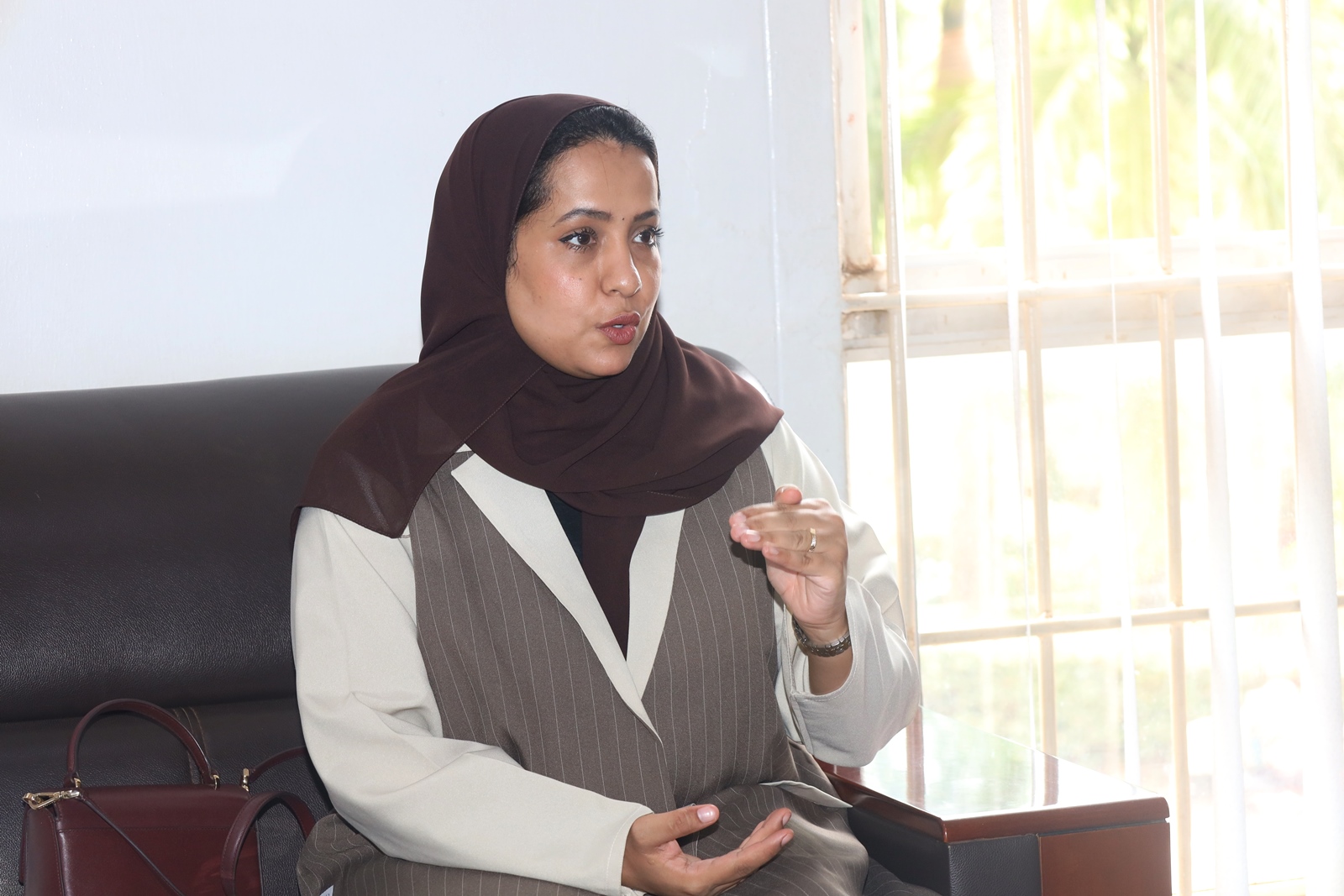
Contributing to the discussion on examining proficiency in the language, Dr. Malki recommended the use of digital testing to measure students’ proficiency in Arabic language.
During the meeting, both parties agreed to actively participate in the rejuvenation of Arabic studies at Makerere University and Uganda at large, through frameworks and institutionalized approaches guided by a Memorandum of Understanding (MoU). The MoU would set parameters for the collaboration integrating the proposed hosting of an Arabic Centre at Makerere University, provision of scholarships, staff and student mobility programmes, joint lectures and supervision, and establishment of teaching and learning facilities.
The College Principal supported the proposal to establish a specialized Arabic Institute with a Language Auditorium. According to Prof. Mugagga, the facility would provide one-stop centre for the teaching of the Arabic language and cultural exchange.
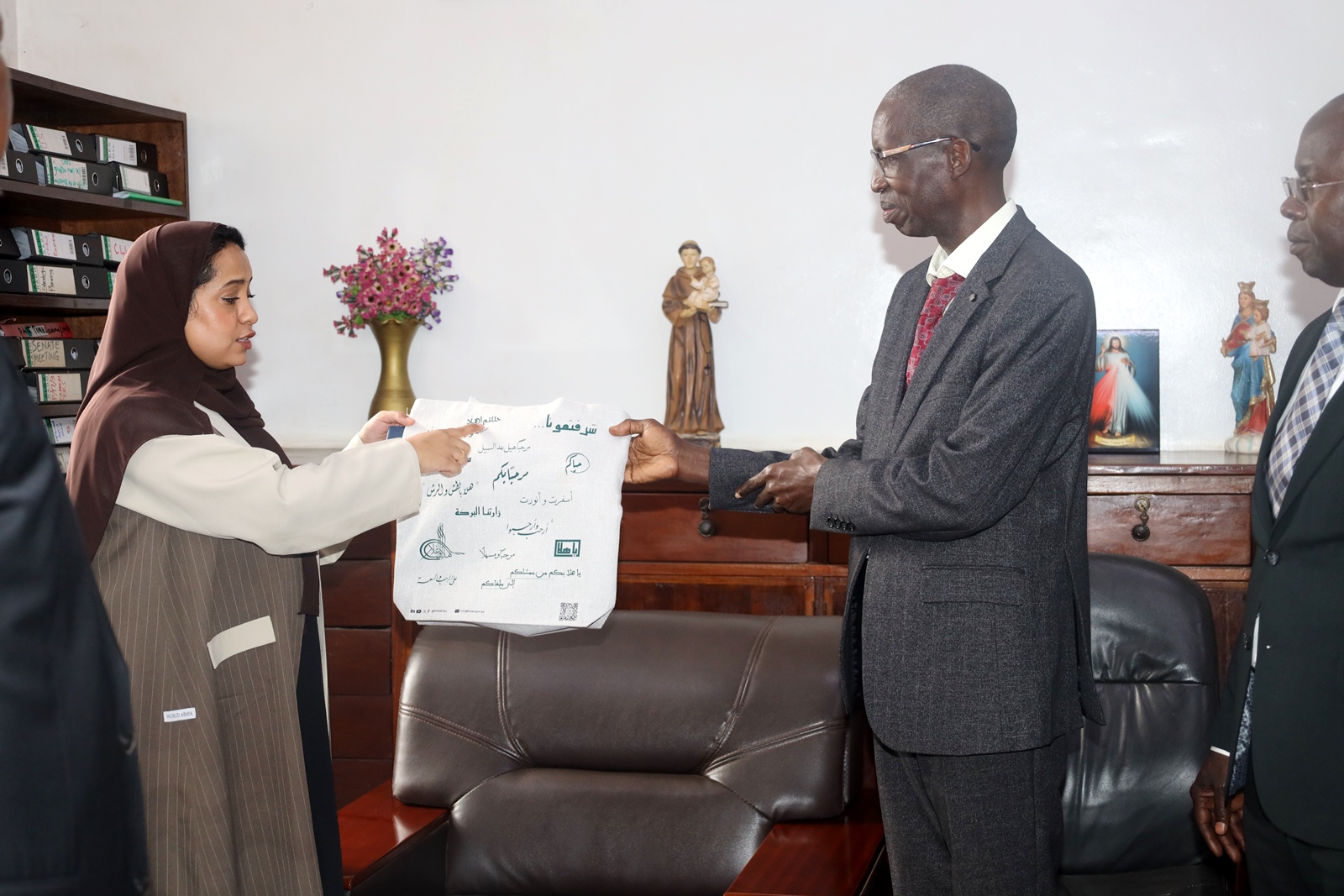
The Head of the Department of Humanities and Language Education, Dr. Kiggundu Musoke stressed the need to prioritize teacher training in the Arabic language field. He explained that through its degree programmes, the College of Education and External Studies trains a number of students/teachers, who on completion of their studies, contribute to the teaching, promotion and dissemination of the Arabic language in Uganda and beyond. However, the demand to enroll for the Arabic language studies is curtailed by the financial limitations faced by some of the prospective applicants.
Convinced that if the prospective students are supported financially to access University education the student enrollment in Arabic language studies would increase to the desired levels, Dr. Kiggundu Musoke urged members to expedite the finalization of the MoU to boost collaboration and provision of scholarships to both staff and students.
Education
Makerere Charts Bold Path for Digital Learning with New ODeL Master Plan
Published
1 month agoon
June 6, 2025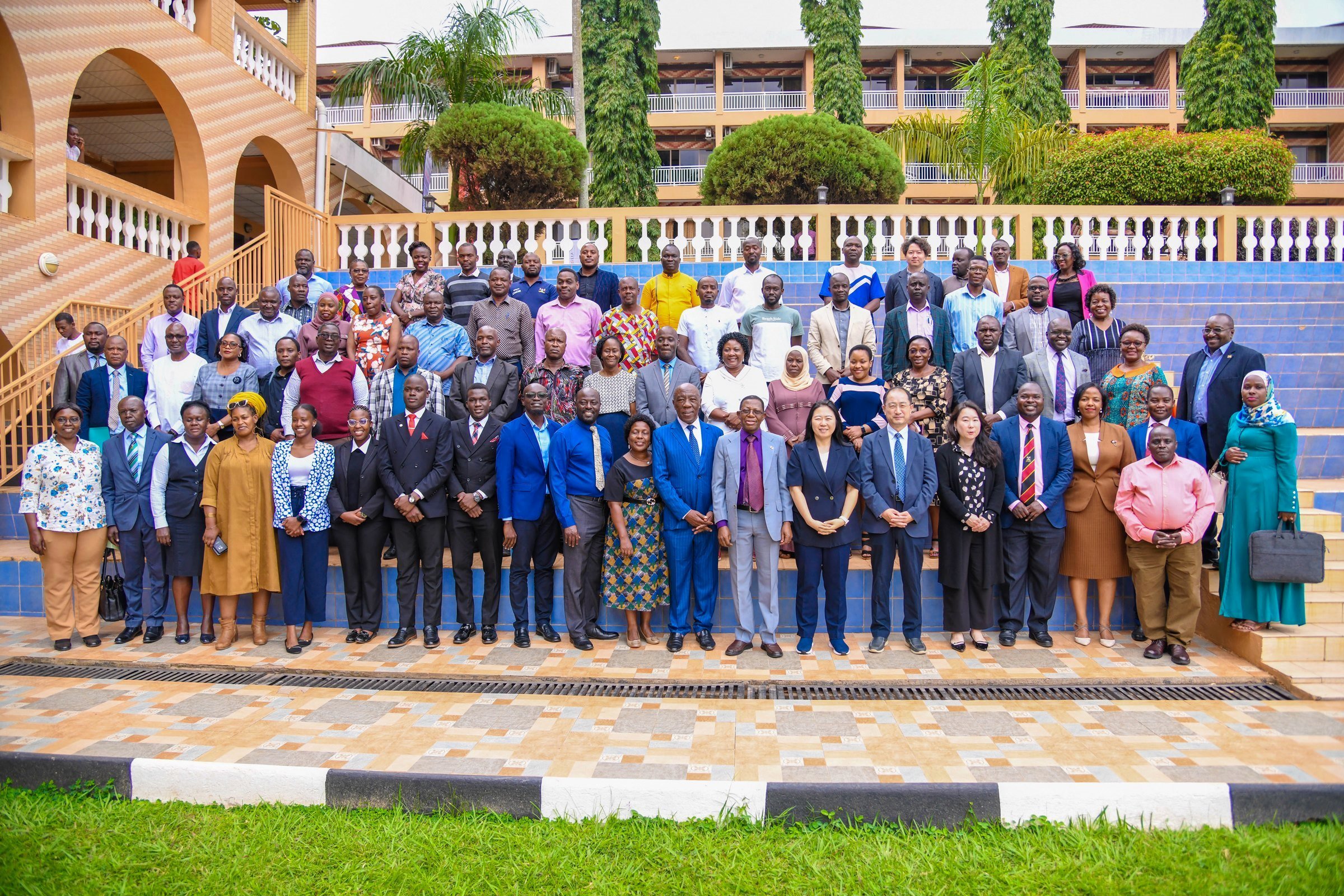
Makerere University has taken a significant step toward transforming its digital education landscape with the unveiling and stakeholder review of its Draft Master Plan for Open, Distance, and e-Learning (ODeL). The consultative workshop, held on Thursday, June 5, 2025, at Hotel Africana, brought together university leadership, academic staff, student representatives, and development partners to review the 10-year roadmap aimed at scaling access to quality, affordable, and inclusive education.
The workshop was officially opened by the Deputy Vice Chancellor (Academic Affairs), Professor Buyinza Mukadasi, who represented the Vice Chancellor. In his remarks, Prof. Buyinza underscored the transformative potential of the KOICA-supported initiative.
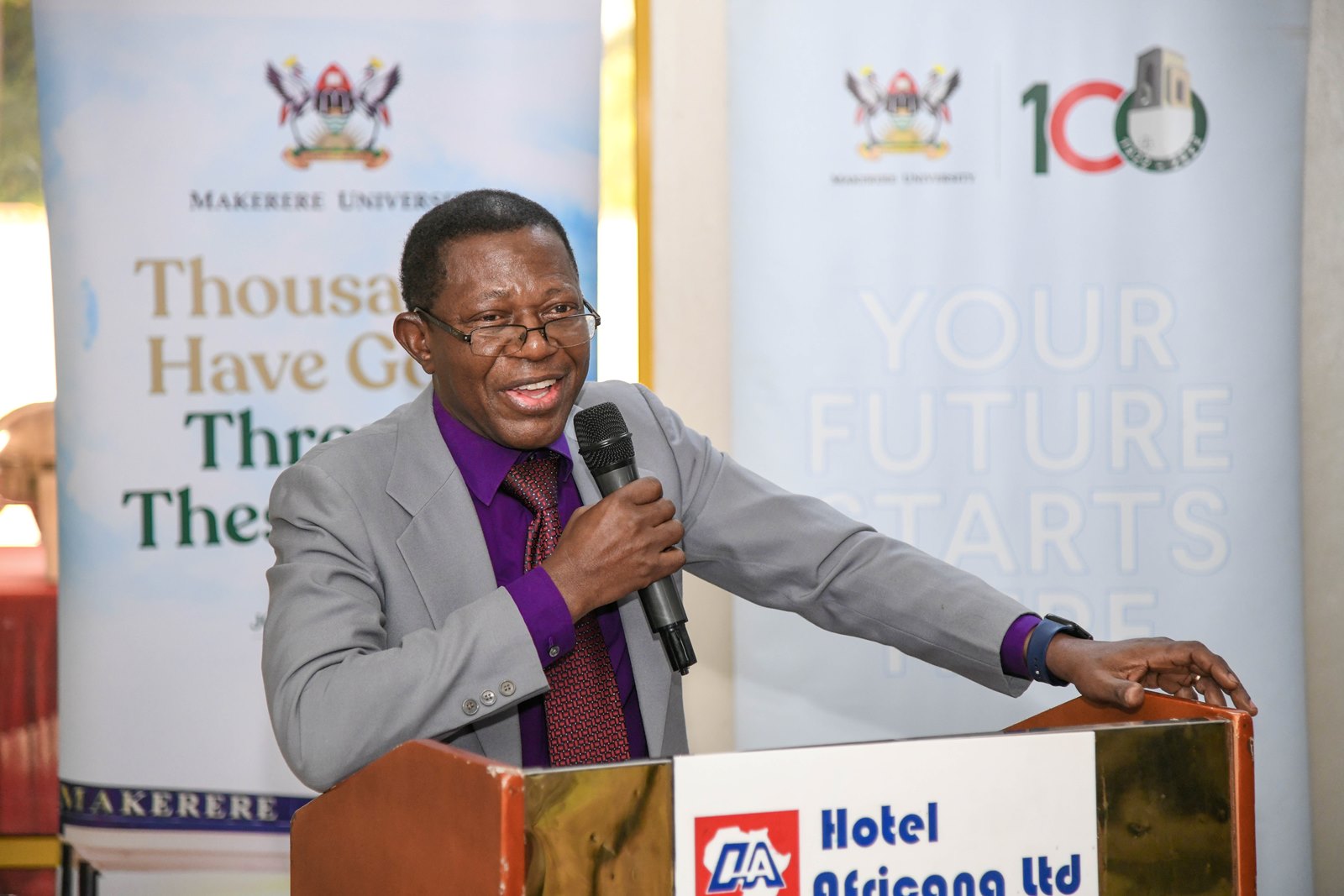
“This project is a significant milestone in our journey to enhance the university’s capacity in ODeL,” he noted. “With support from the people of the Republic of Korea, KOICA’s grant will enable us to strengthen our ODeL infrastructure, develop high-quality digital content, and build staff capacity. This investment will undoubtedly have a lasting impact on our institution and the wider education sector in Uganda.”
Prof. Buyinza also paid tribute to the late Prof. Sung Seyeoung, the head of the Project Management Consultant team in Seoul, who passed away earlier this year, describing him as “a dedicated partner in this transformative journey.”
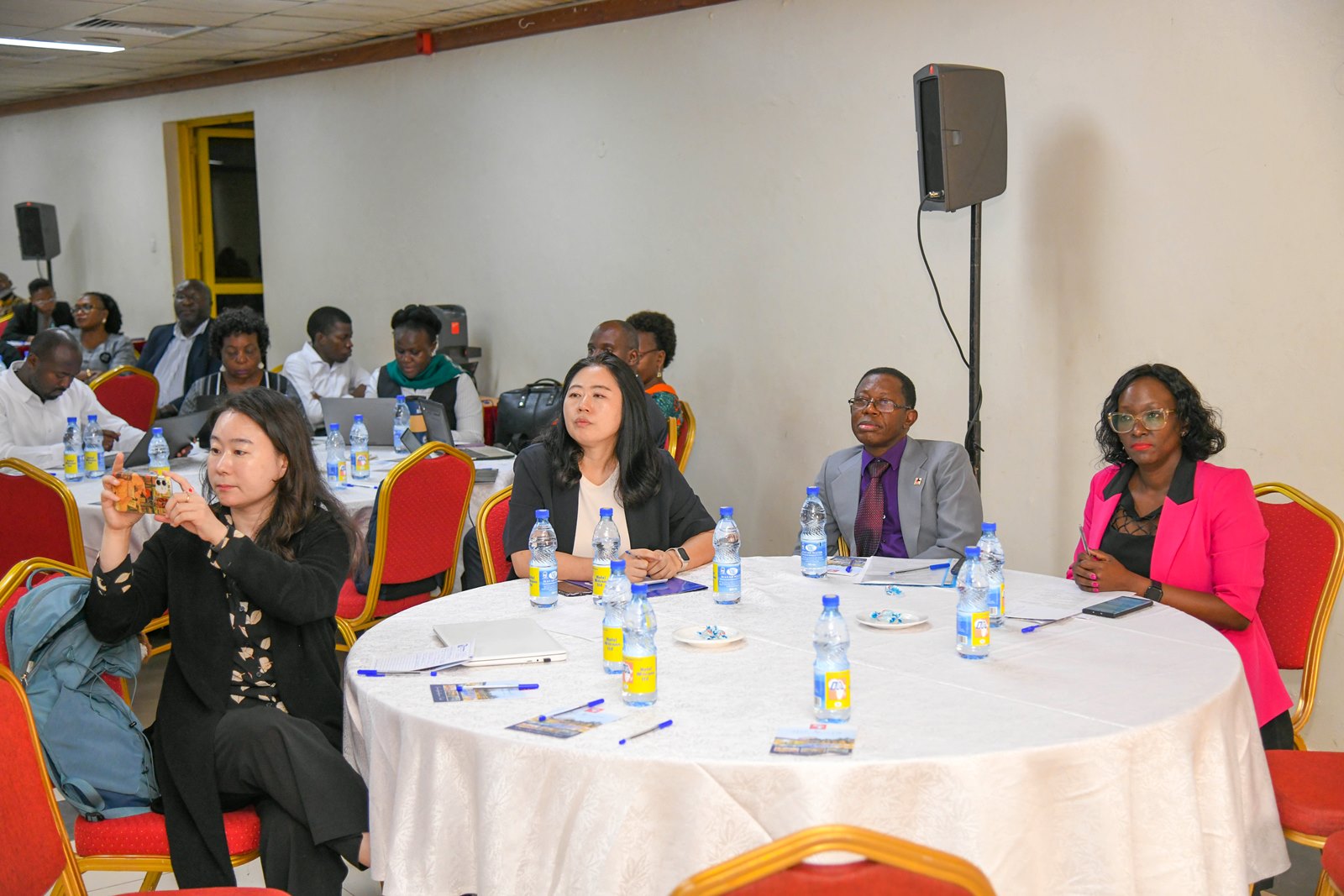
The project, which began in 2024, is being implemented with technical support from the Korea National Open University (KNOU) and the Korea Institute for Development Strategy (KDS). It focuses on three core components: development of a strategic and contextualized ODeL masterplan; capacity building for academic, administrative, and technical staff; and enhancement of ODeL infrastructure, including a new Learning Management System (LMS), Content Management System (CMS), ICT equipment, and the construction of a dedicated ODeL building.
Professor Henry Alinaitwe, the Project Investigator, emphasized the forward-looking nature of the initiative. “Through this masterplan, we are not only expanding access to higher education across Uganda and beyond, but also redefining how knowledge is delivered in the 21st century,” he said.
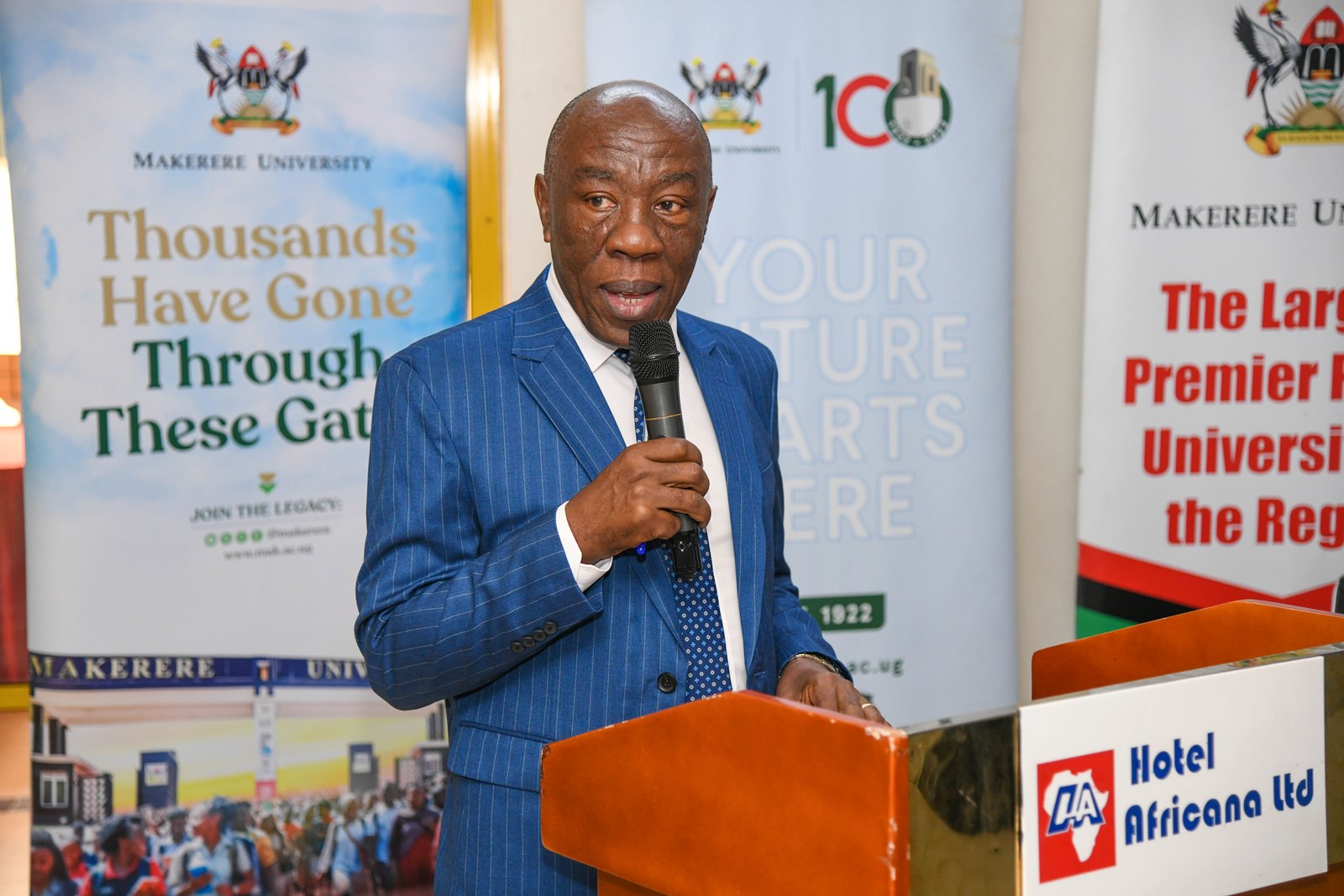
The workshop aimed to disseminate information about the masterplan, gather stakeholder feedback, and prepare the document for preliminary approvals by the University Senate and Council. The draft was developed by a joint task force composed of Ugandan and Korean experts, including representatives from KNOU, KDS, Makerere’s Institute of Open, Distance and e-Learning (IODel), and the Directorate for ICT Support (DICTS).
Prof. Alinaitwe noted that all three project components are progressing steadily. Training sessions are underway both in Uganda and Korea, and the design for the Mak-ODeL building is currently 60% complete, with construction expected to commence later in the year.
The ODeL Master Plan (2025–2035) envisions Makerere as a regional hub for digital education. It outlines strategies to increase the number of accredited ODeL programmes, enhance ICT infrastructure, improve content development, and ensure that distance learners can access high-quality and flexible education through the university’s Moodle-based MUELE platform.
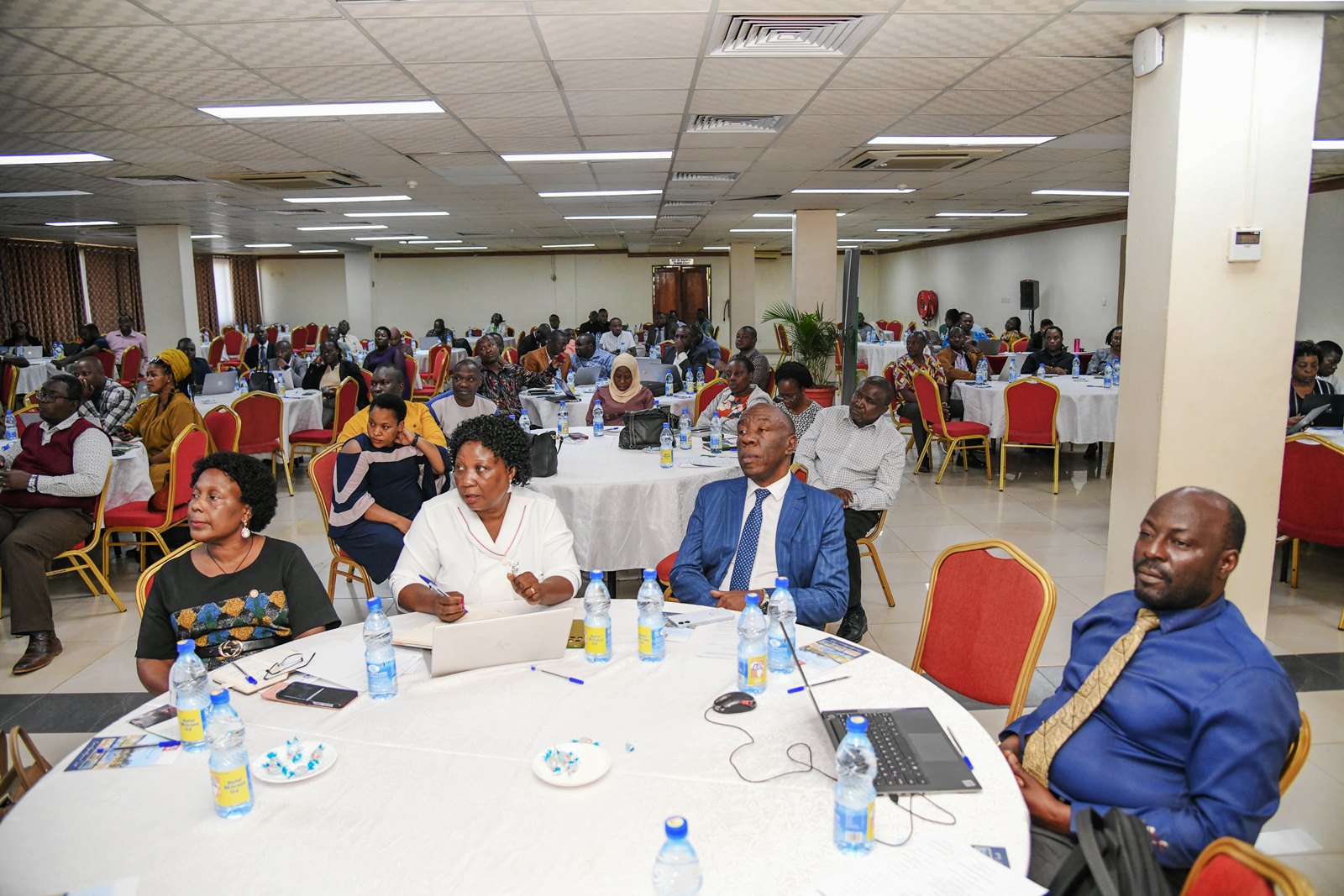
Speaking at the workshop, KOICA Country Director Ms. Ahn Jihee commended Makerere for its commitment to digital transformation. “We believe education is a powerful driver of national development, and we are proud to partner with Makerere University on this ambitious journey,” she said. “Our partnership is not just about technology, but about building resilient systems and empowered people who can shape the future.”
She also recognized the efforts of both Ugandan and Korean teams and encouraged continued dialogue and knowledge sharing.
Currently, only 8 of Makerere’s academic programmes are offered through ODeL. However, the university’s Strategic Plan (2020–2030) envisions a substantial increase in that number. The new masterplan draws from international best practices including models from KNOU, Hanoi Open University, and the Africa Virtual University.
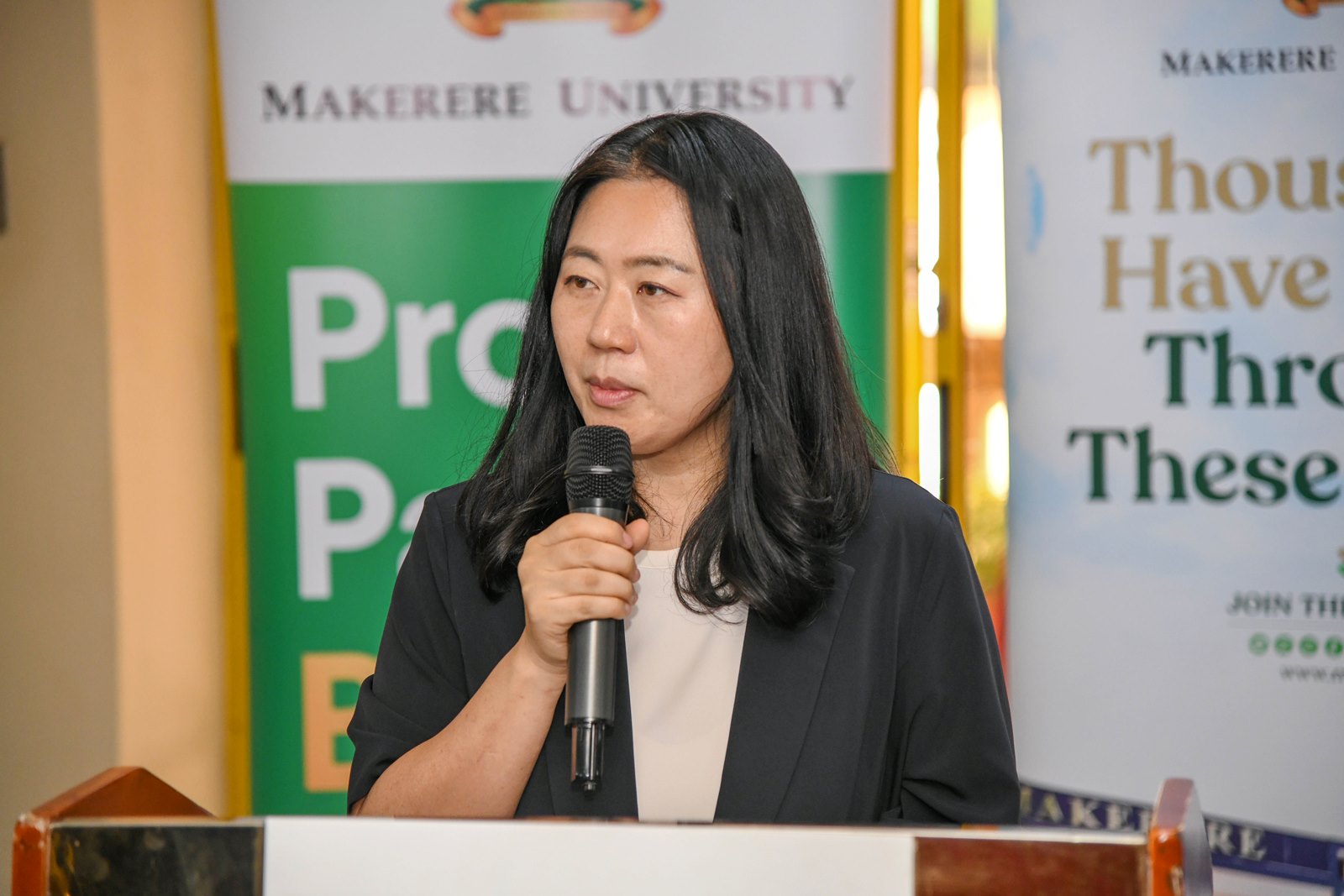
Prof. Alinaitwe extended special thanks to KOICA and its Kampala-based experts Prof. Kim Hyunjoo and Mr. Kim Kihun for their ongoing support, and acknowledged the contributions of the Makerere team—Prof. Paul Muyinda, Dr. Godfrey Mayende, Dr. Harriet Nabushawo, Dr. Richard Kajumbula, Mr. Samuel Mugabi, and Co-PI Dr. Venny Nakazibwe.
“We are laying the foundation for a future where Makerere University can provide education that is not just accessible, but also adaptable to the needs of learners wherever they may be,” he concluded.
The masterplan, once finalized and approved, is expected to usher in a new era of blended, learner-centered education that meets both local and global demands.
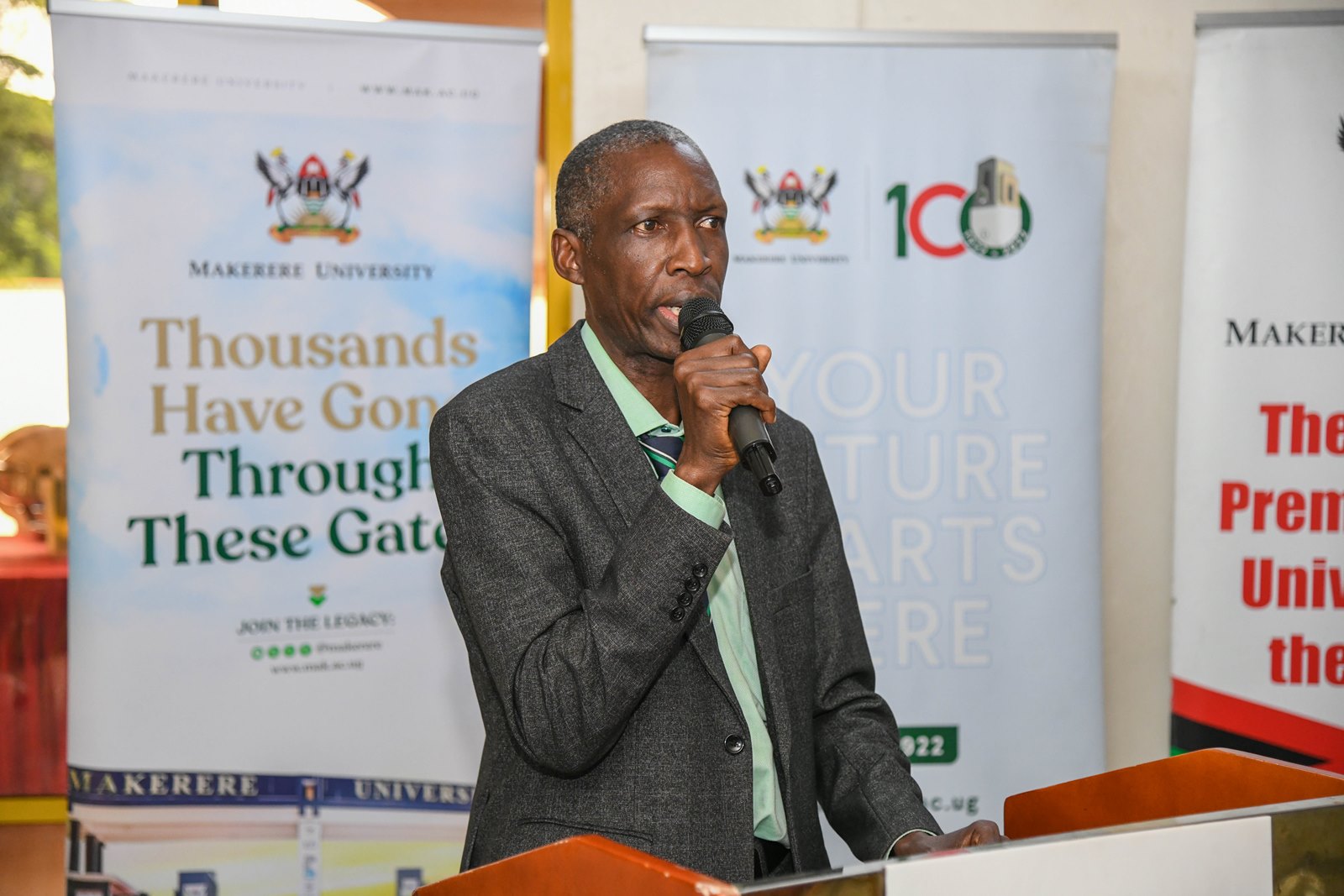
In his closing remarks, Professor Anthony Mugagga, who represented the Deputy Vice Chancellor (Finance and Administration), applauded participants for their insightful engagement. He emphasized the need for academic units to take ownership of ODeL implementation.
“The future of education is blended and borderless,” Prof. Mugagga said. “We must collectively embrace this shift—not just through policy, but through action: by developing new programmes, supporting learners, and investing in infrastructure that will carry us into the next generation of higher education.”
He also expressed appreciation to KOICA for its continued support and funding, which he said is helping to shape a more resilient and inclusive education system for Uganda and the region.
Trending
-

 General2 weeks ago
General2 weeks agoRe-advert: Admission to Undergraduate Programmes 2025/2026
-

 General1 week ago
General1 week agoRe-Advert for Applications for Diploma and Certificate Training
-

 General5 days ago
General5 days agoMakerere University Fees Waiver for 40 First Year Female Students 2025/2026
-

 General2 weeks ago
General2 weeks agoPress Statement on Ranking
-

 Health1 week ago
Health1 week agoCall for Applications: Responsible Conduct of Research (RCR) Training Course